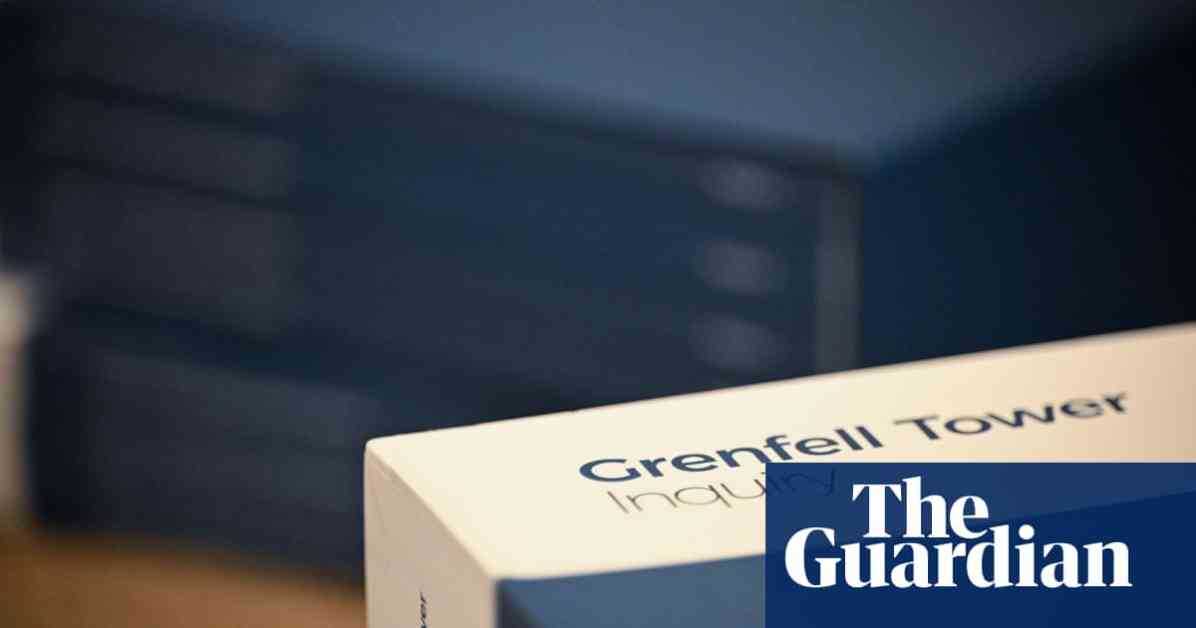Public inquiries play a crucial role in investigating major incidents, holding authorities accountable, and providing closure for victims and survivors. However, a recent report by a House of Lords committee suggests that there is a need for significant reforms to improve the efficiency and effectiveness of these inquiries.
The Need for Reform
The report highlights concerns that public inquiries are often perceived as being too lengthy and expensive, which can undermine their credibility and prolong the trauma experienced by those affected. In particular, the Grenfell Tower public inquiry, which lasted almost seven years, has raised questions about the need for a more streamlined and transparent process.
One of the key recommendations put forth by the committee is the establishment of indicative deadlines for each inquiry, with strict permissions required for extensions. This approach aims to not only expedite the process but also enhance public trust by providing clear timelines for the investigation and implementation of recommendations.
Furthermore, the report suggests the creation of a parliamentary public inquiries committee to oversee the progress of recommendations and ensure that the government takes appropriate action. Failure to act on these recommendations not only jeopardizes the prevention of future disasters but also undermines the purpose of holding inquiries in the first place.
The Impact of Delayed Action
The committee heard evidence that implementing recommendations from past inquiries could have potentially prevented subsequent tragedies. For instance, the report cites the Bristol Royal Infirmary inquiry in 2001, whose recommendations may have mitigated the patient deaths investigated in the Mid-Staffordshire Hospitals Inquiry in 2013. Similarly, changes recommended by the Lakanal House fire inquest in 2013 could have potentially averted the Grenfell Tower tragedy.
Lord Norton, chair of the House of Lords statutory inquiries committee, emphasizes the importance of building public trust through timely and effective actions following inquiries. The delay in implementing recommendations not only risks the recurrence of disasters but also erodes public confidence in the inquiry process.
Challenges and Solutions
The report acknowledges the challenges posed by the lengthy and costly nature of public inquiries, with 18 inquiries taking place in the UK this year alone. The Grenfell inquiry, which cost £173 million, has raised concerns about its impact on criminal investigations and the overall delay in delivering justice.
To address these challenges, the committee recommends better sharing of best practices to minimize delays and costs. The proposed parliamentary public inquiries committee would play a crucial role in identifying systemic policy failures across different inquiries and ensuring that recommendations are effectively implemented.
Additionally, the report calls for a publicly accessible record of recommendations made by select committees, coroners, and public inquiries, along with a description of the steps taken in response. This transparency is essential for holding authorities accountable and building public trust in the inquiry process.
Diversity and Expertise
In addition to streamlining the inquiry process, the report suggests diversifying the pool of inquiry chairs by considering individuals who are not judges. This approach aims to bring in more subject-area expertise and perspectives, enhancing the overall effectiveness of the inquiry.
Furthermore, the committee recognizes the benefits of non-statutory inquiries, such as their speed, cost-effectiveness, and the ability for families to directly ask questions. While statutory inquiries have the power to compel witnesses to give evidence, non-statutory inquiries provide a more flexible and inclusive approach that can encourage witnesses to provide frank and open testimony.
In conclusion, the report by the House of Lords committee calls for a comprehensive overhaul of the public inquiry process to make it more efficient, cost-effective, and trusted by the public. By implementing the recommendations put forth in the report, the government can work towards restoring public confidence, preventing future disasters, and delivering justice for victims and survivors.












